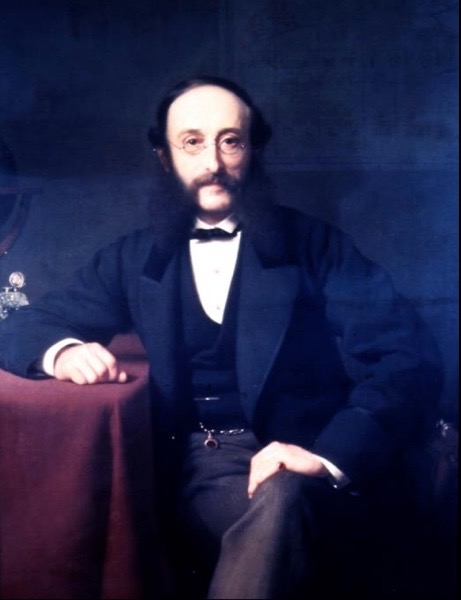Columns
Birth of a genius
Thursday 3 November 2016
When I joined Reuters in 1952 I quickly encountered the genius of Paul Julius Reuter in a field unrelated to news.
 We still handled on the desk money remittance cables. An Indian in Nairobi deposited the money for the remittance at the Reuter office, which sent a telegram to London and we sent it on to Bombay, where the beneficiary collected the remittance. It was an extension of the telegram business which Reuter founded and was Reuter’s brilliant precursor of PayPal.
We still handled on the desk money remittance cables. An Indian in Nairobi deposited the money for the remittance at the Reuter office, which sent a telegram to London and we sent it on to Bombay, where the beneficiary collected the remittance. It was an extension of the telegram business which Reuter founded and was Reuter’s brilliant precursor of PayPal.
The genius of Israel Beer Josaphat - the name given to him when he was born - was slow to show itself. But the characteristic which always shone through was his resilience - the ability always to bounce back.
It took him seven years to break into the British newspaper market with rejection after rejection, particularly from the haughty London Times. A lesser man would have given up.
Reuter would never have claimed to have been a pioneer in the news business - that was Charles Havas. I believe that the reason Reuter marked himself out as a genius was because of his other extraordinary acts of entrepreneurship.
Not satisfied with supplying news, he built the cables to carry it. To lay the cable from Lowestoft to Norderney in Germany in 1866 cost Reuter £153,000. Four years later he sold it to the British government for £726,000, a profit of £573,000. That is £58 million at today’s values.
Not satisfied with girdling the earth with his news, in 1872 he signed a contract which the British statesman Lord Curzon described as the most complete grant ever made of control of resources by any country to a foreigner. “The news of the concession fell like a bombshell in Europe”, he said. Reuter signed it with Nasir al-Din Shah, king of Persia. Reuter was required to build a railway and tramways and other utilities, work all mines except gold and silver, found a bank and manage the customs. Given our knowledge of the history of Persia in the twentieth century we are not surprised that the imams opposed the concession and the shah was forced to find an excuse cancel it. But a second concession in 1889 gave him the license to found the Imperial Bank of Persia - so all was not lost.
We very properly credit Reuter with laying down the principles of independence which we have treasured and which have always governed the company he founded
We very properly credit Reuter with laying down the principles of independence which we have treasured and which have always governed the company he founded. After all, his German competitor Wolff was not independent. I am sure the astute businessman Reuter would not have exaggerated the motivation. When we were discussing the flotation of Reuters in the Reuter Board in 1984 I well remember Rupert Murdoch questioning the need to continue the Reuter Trust. “After all”, he said, “It is in Reuters commercial interest to be independent.” Cynics amongst us thought he would say that because the Trust would be a barrier if he ever wanted to acquire the company.
I must comment on one of Reuter’s incidental strokes of genius. It was to change his name from Josaphat to Reuter. Think: If he had not done that, when someone asked you who you worked for you would have had to say: Thomson Josaphats. Thomson Reuters sounds much better.
Some have questioned the extent of Reuter’s financial success. He died in 1899 worth £263,000 gross. That is £31 million today. I think that was a very respectable sum for the poor son of a rabbi.
We commemorate today the birth of a genius. We shall always be in the great man’s debt.
The portrait of Paul Julius Reuter was painted by Rudolf Lehmann in 1869 and later exhibited at the Royal Academy’s Summer Exhibition. It eventually came into the possession of his grandson Hubert, 3rd Baron de Reuter, who in 1916 presented it to Roderick Jones, then head of Reuters. It now hangs in the boardroom of Thomson Reuters’ office at 3 Times Square, New York.
■
- « Previous
- Next »
- 19 of 65
